In choosing Italy’s often-overlooked southeastern region of Puglia for a spring vacation with our kids, our first criteria was simply to find somewhere in this country we adore that was not overrun with tourists. But beyond a little tranquility, we were drawn to Puglia by its beaches, distinctive architecture, and its well-deserved reputation for Mediterranean cuisine.
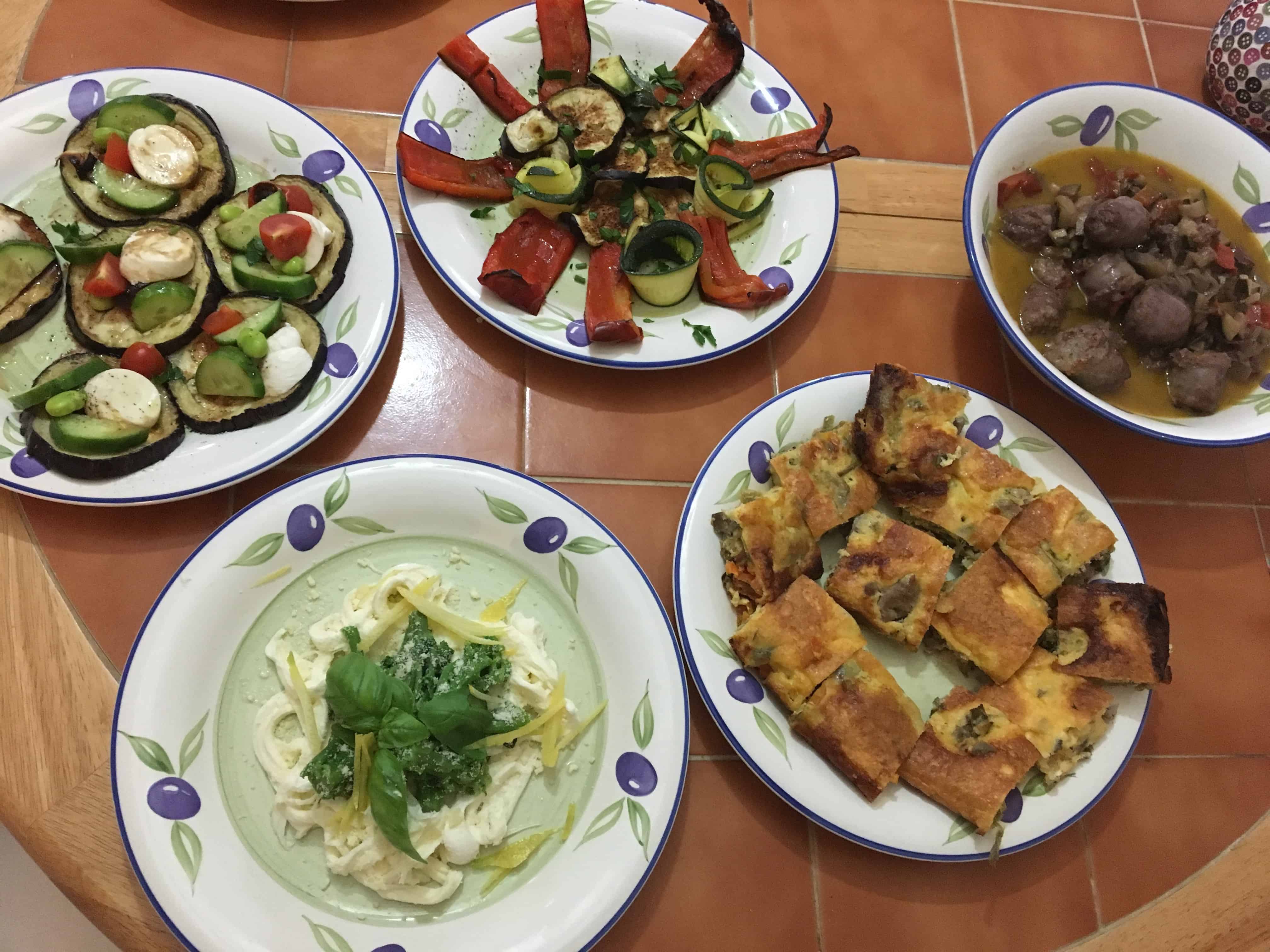
The Trulli Of Puglia
Our trip began on an April weekend in Rome, a stop we felt obligated to make so the kids, ages 11 and 14, could visit the checklist of sights one ought to see once in a lifetime while navigating hordes of visitors like ourselves. Joined also by our 22-year-old nephew, we then escaped into a rental car to drive six hours east and then south to Puglia. Most people would recognize this region as the “boot heel”, and it is also sometimes called by its older name, “Apulia.”
Puglia’s architecture is notable for its stone homes, called “trulii” (or “trullo” for just one). The structure is circular at the bottom made from the region’s white limestone, with a cone-shaped roof made from flat stones stacked on top. They look like huts built for gnomes or hobbits, made sometimes more cryptic by seemingly religious symbols painted on the roofs.
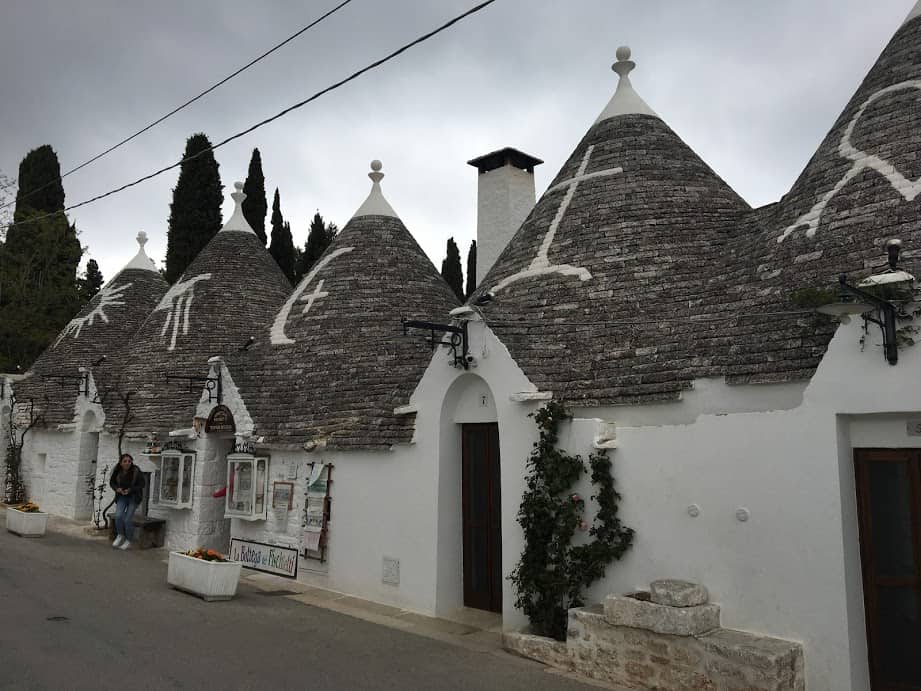
A row of Trulli in the city of Alberobello, Italy.
We rented Trullo Rosa, located about 2 km outside the town of Alberobello, from a British family who run Trullo Holidays. Puglia is one of the most economically troubled regions of Italy, and as they have done in places likw France’s Dordogne or Spain’s Grenada, the British swooped in on the back of a strong pound (pre-Brexit, anyways) and bought up large amounts of property. Across Puglia they are busy renovating trulli, putting in swimming pools and modern amenities for tourists.
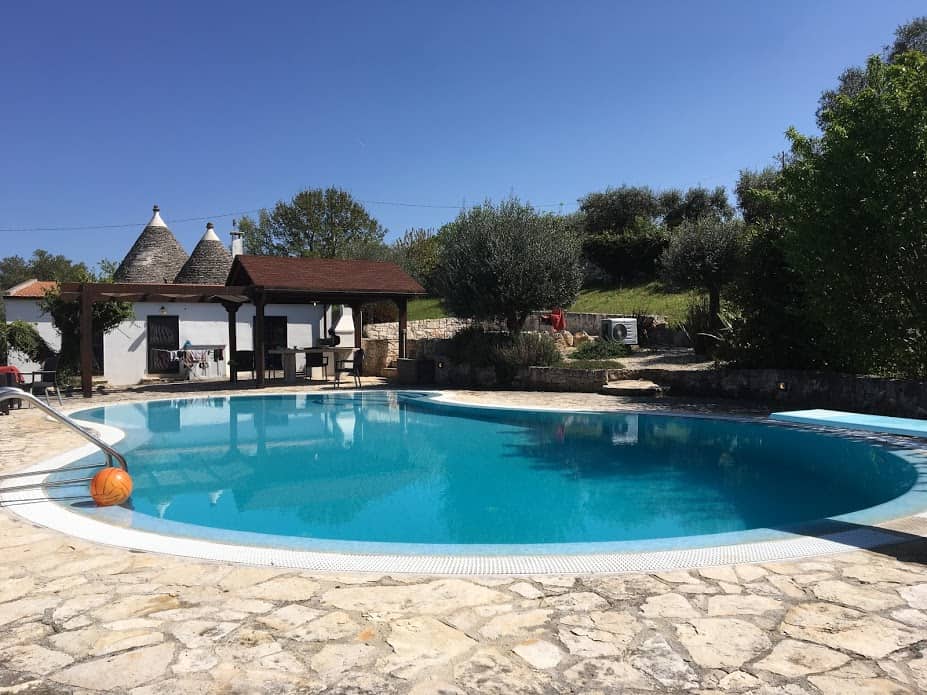
Trullo Rosa
Saved By An IPad And Google Translate
It was the British agent for our trullo who originally helped arrange our cooking class. We explained we had about a €200 budget and were hoping to find someone for 2 hours. But at the last minute, the agent called to say the cook had cancelled, and that he was scrambling to find a replacement. We put on our saddest American faces, and pleaded with him to find someone. And so he did, saying the cook was on his way to our trullo and not to worry because he spoke perfect English.
About 15 minutes later, a car pulled into the driveway, and out popped a grinning, grey-haired, bespectacled man with a cherubic face. Naturally, his name was Giuseppe. And he spoke not a word of English.
There was much gesturing of hands and slow-talking in an effort to communicate before Giuseppe reached into a sack and pulled out an iPad. He flipped open the cover and typed in the address for Google Translate. So began our cooking lesson.
We explained that we were hoping he would teach us how to make a couple of local dishes using ingredients we would buy at a local market. Giuseppe nodded enthusiastically, and we all piled into our car as he directed me. We passed dozens of farms along the way where crews were digging deep into the soil to find the local stones needed to fuel the frenzied restorations of all these local trulli. The route took us through the main nearby town, Alberobello, where we already had spent hours wandering and gazing at the cascade of trulli that cover one of its hillsides and which had earned it a designation as a UNESCO World Heritage site.
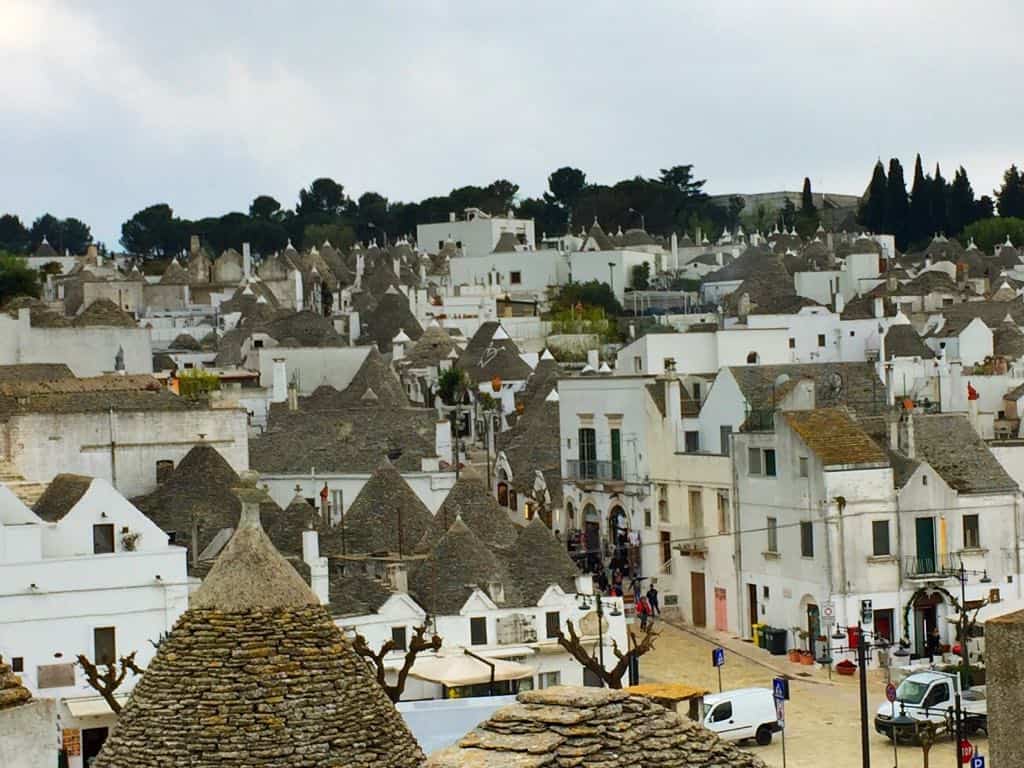
The city center of Alberobello, Italy.
The Open Air Market Of Locorotondo
On the other side of town, Giuseppe led us straight up to what appeared to be an Italian version of Safeway, where he ran inside and excitedly began filling a shopping basket. This was not quite the romantic, open-air market experience of our dreams, and we attempted awkwardly to explain that via the iPad. After a few attempts, the light seemed to go on, and Giuseppe was back in the car, leading us east to the town of Locorotondo, where sure enough, a sprawling market was in full bloom along the city center’s streets.
We had previously passed through the town on our way south to beaches near the town of Taranto, facing the Ionian Sea (between the heel and toe of the boot). One of the advantages of Puglia is that access to beaches on two sides can offer wildly different weather patterns. Another day, we had gone north to a beach on the Adriatic Sea facing Montenegro, and the wind was so intense it blew all but the hardiest of kite surfers off the sand.
But on this day, stumbling into the market, Giuseppe zipped through the stalls with us in tow, pointing to sausages, mussels, mozzarella, tomatoes, peppers, eggplant, holding up fingers, handing us sacks as we paid, and moving so quickly we didn’t have time to contemplate what possible concoctions he might have in mind.
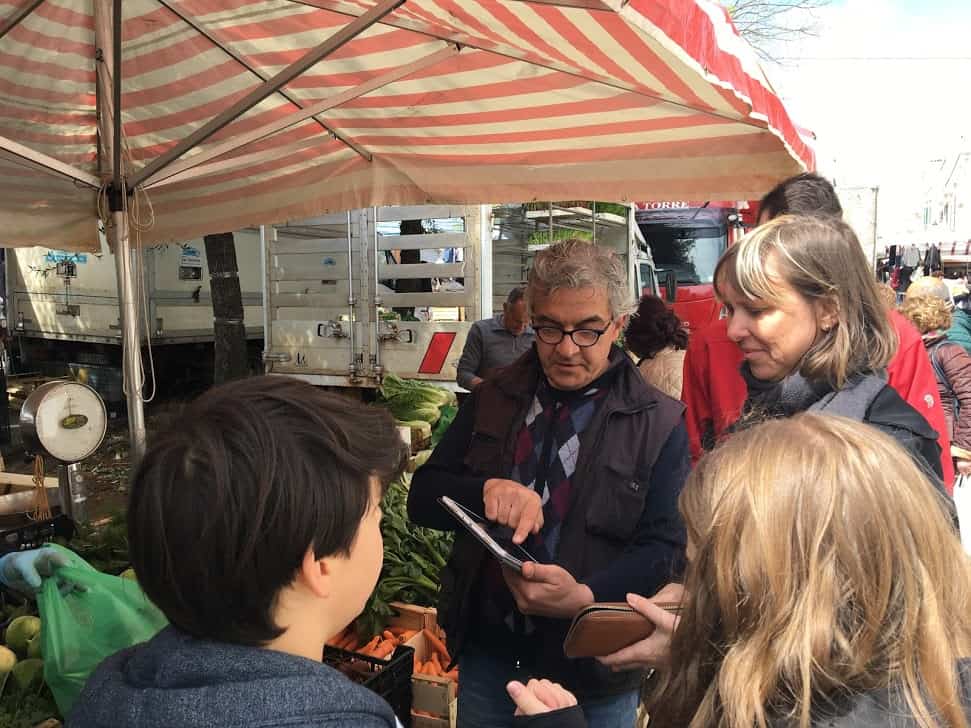
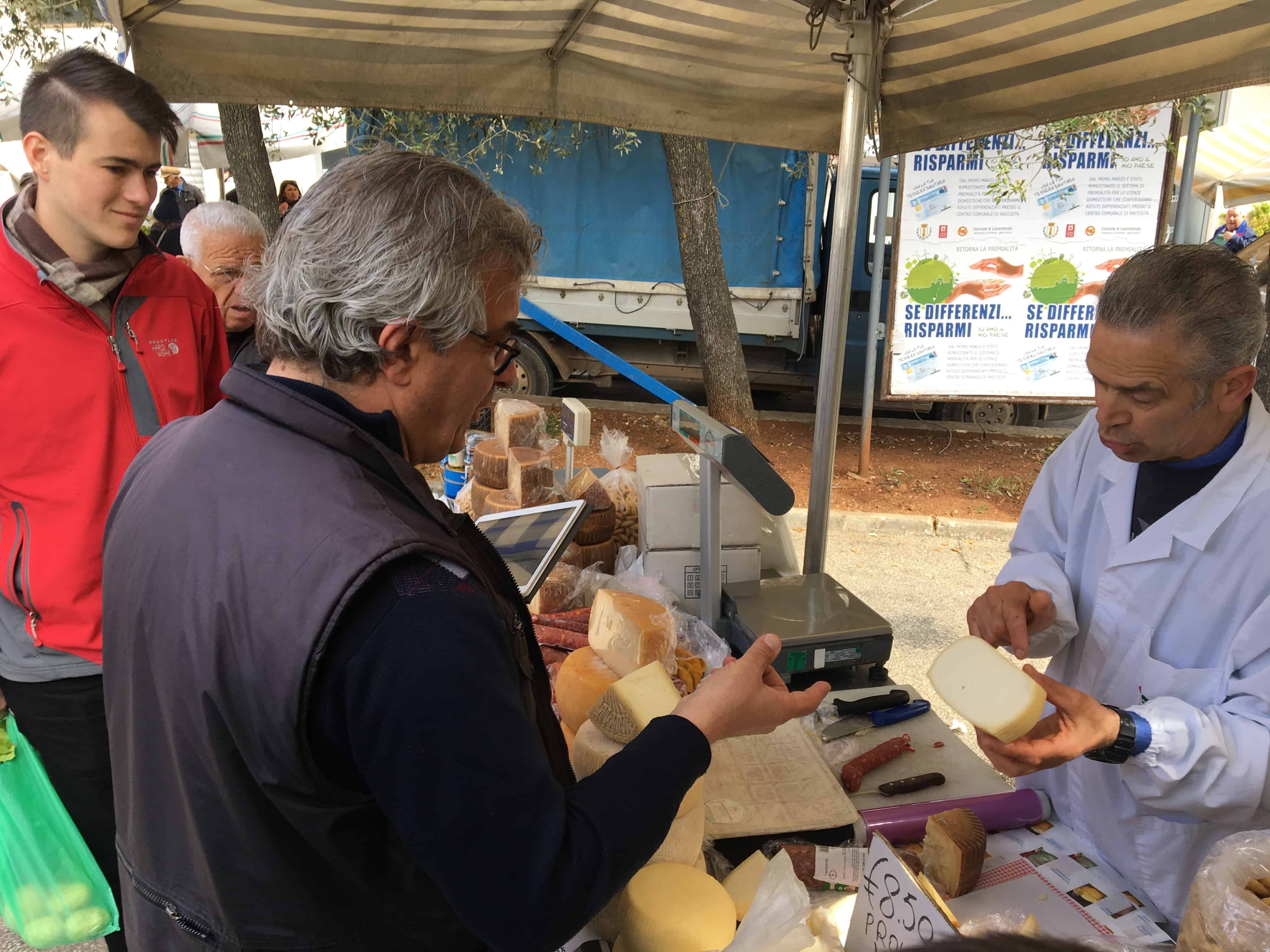
A Tidal Wave Of Italian Cuisine
Back at the trullo, Giuseppe put on his apron and became a tornado of cooking action as we attempted to help, take notes, photos, and generally keep pace. First, the antipasti, three kinds. One with zucchini, eggplant, green peppers, sliced and cooked in a pan before placing mozzarella on top and baking; another with sliced eggplant as a foundation and piling on mozzarella, tomato, fava beans, cucumber, parsley and balsamic before baking; the final with pulled strips of mozzarella, lemon peels, chopped broccoli, topped with basil and oregano.
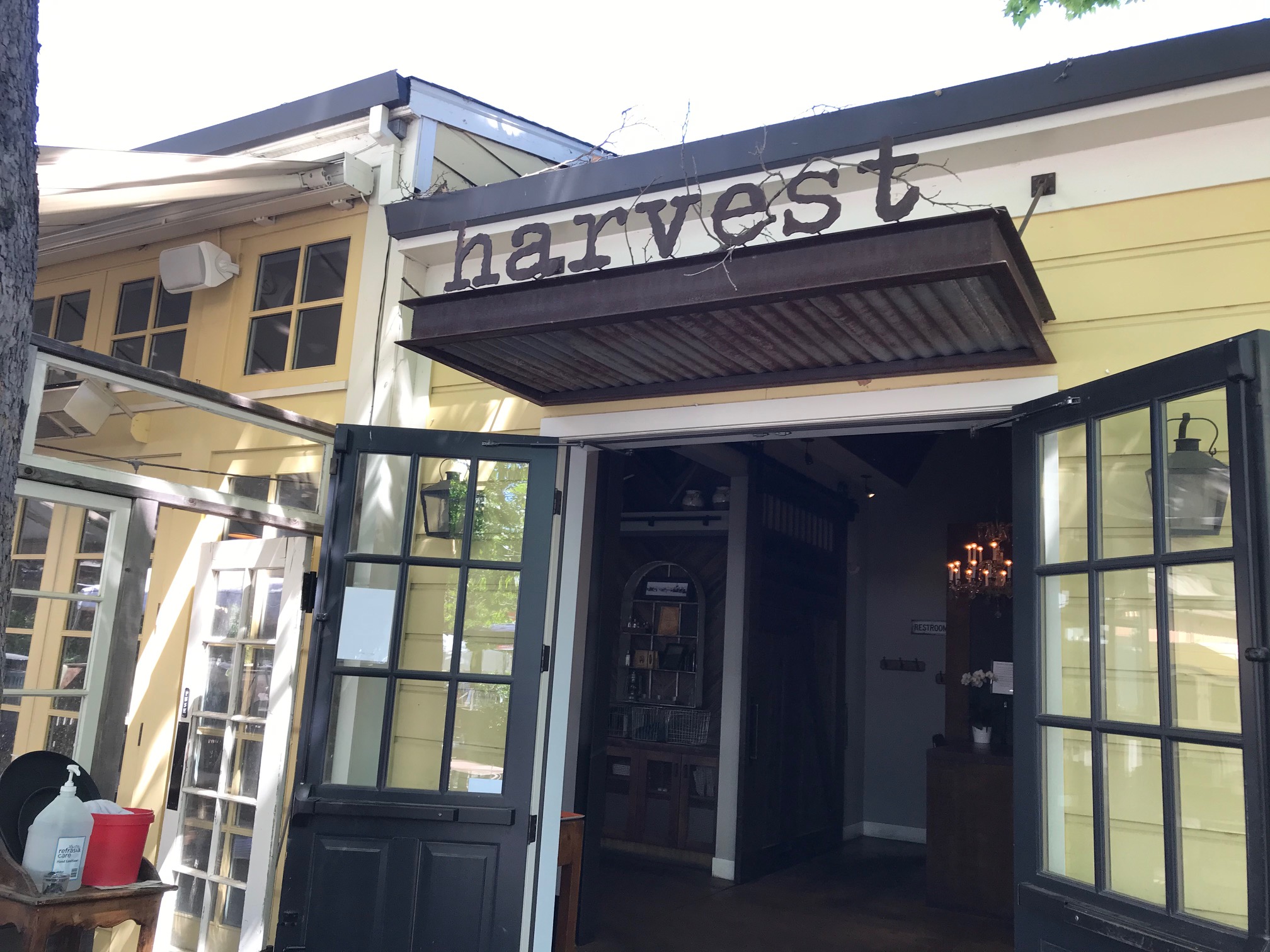
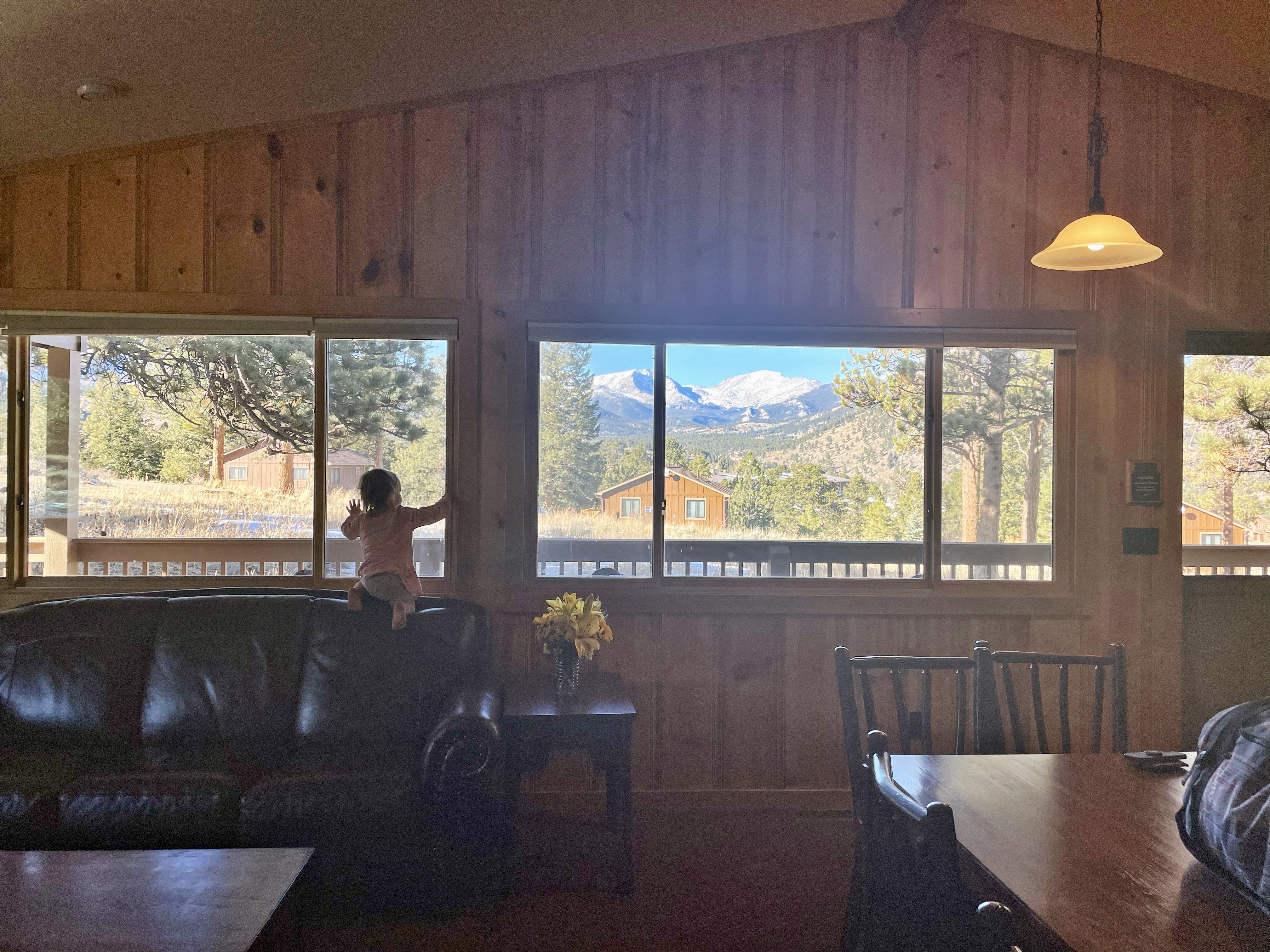
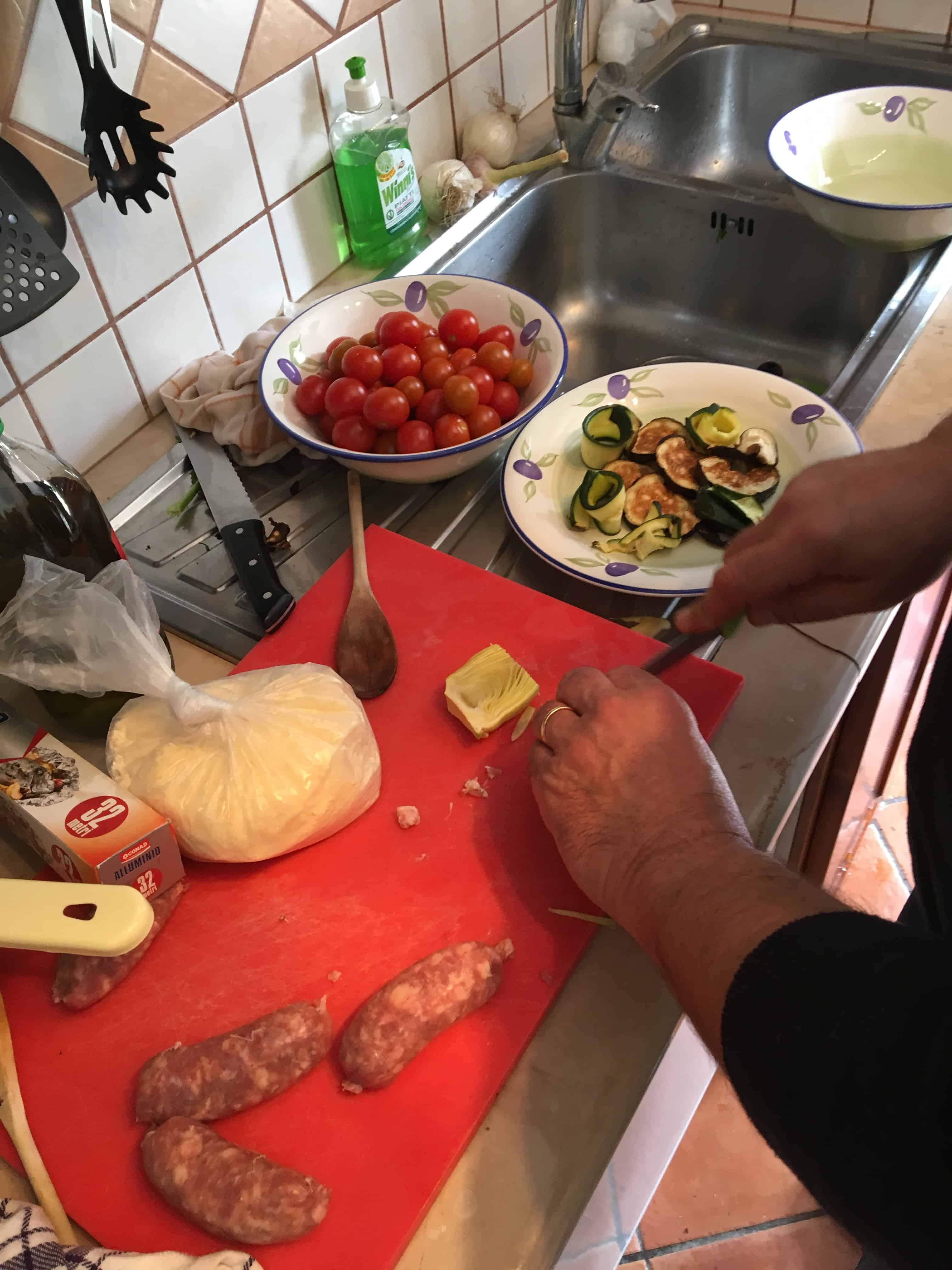
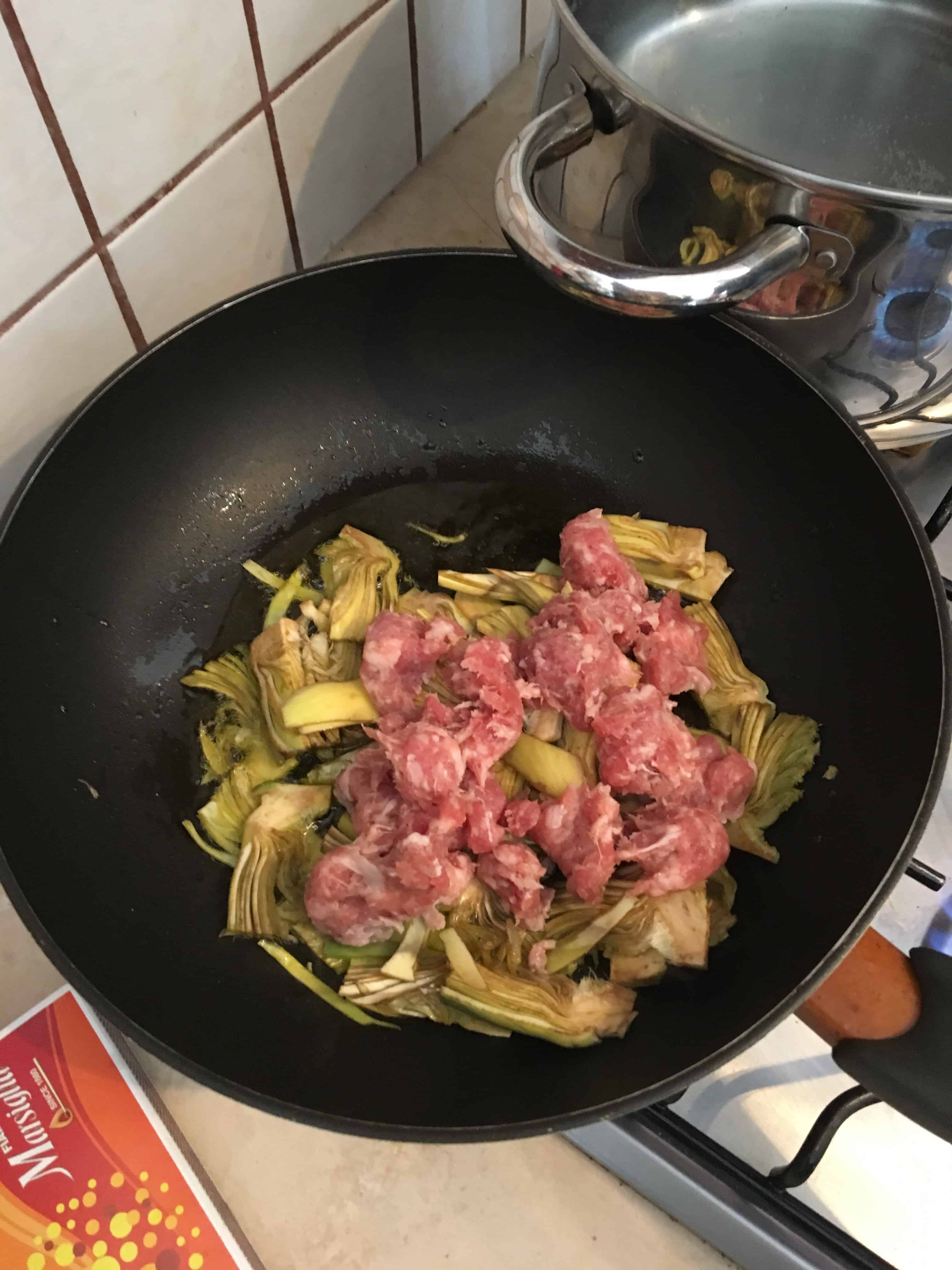
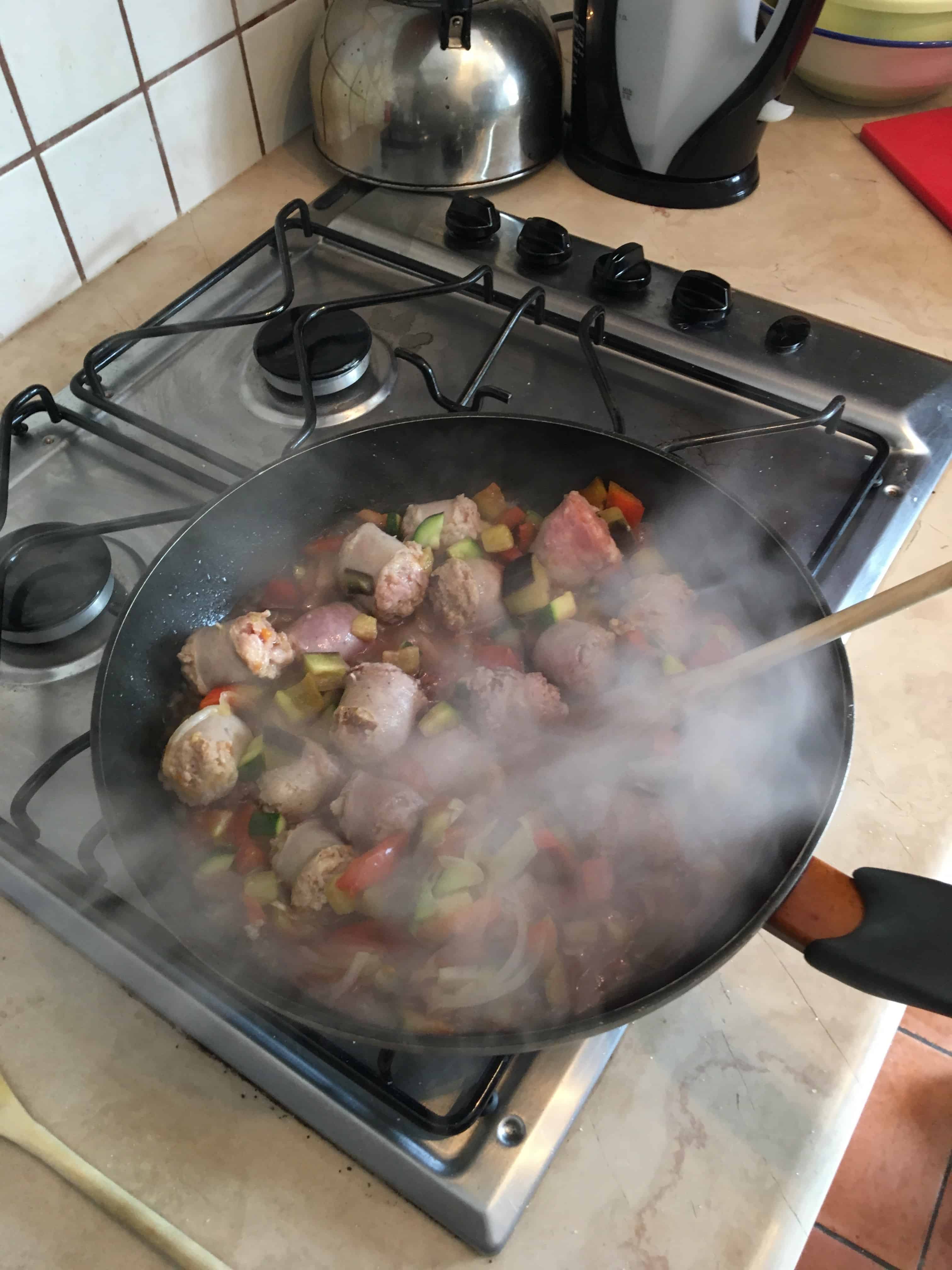

At some point, in trying to reconstruct my wife’s notes, each recipe includes some version of the line: “olive oil – lots.” Puglia is Italy’s leading region for producing olive oil, and the locals must have it coursing through their veins. After we had recovered a few days later, we would journey inland for an olive oil tasting at Masseria Brancati, an olive farm and B&B where one can wander among the spookily gnarled trees that they claim date to Roman times. The farm is not far from the city of Ostuni, Puglia’s “White City” one of the region’s crown jewels with its whitewashed buildings on a hilltop that make for romantic walks and views.
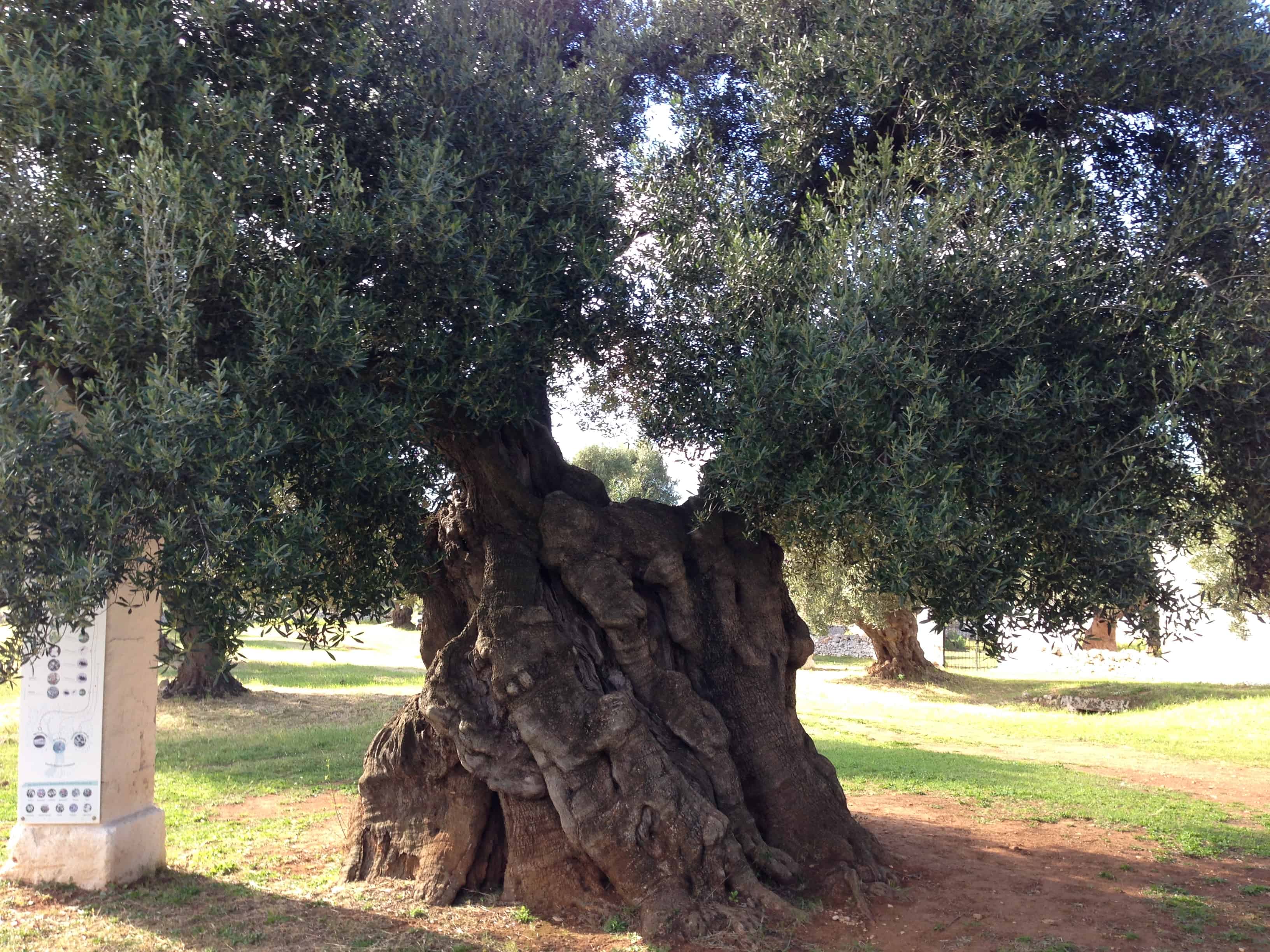
An old, old, old olive tree at Masseria Brancati.
Piles Of Pasta Making
Next was the pasta sauces. A local ham with tomatoes, parsley, ricotta, and the local vaccino cheese; another with shredded broccoli, lemon, and tomato. Now the pasta itself, an eggless variety. He pulled out his pasta maker and soon he and our kids, who had wandered back in, were making ravioli, stuffed with ricotta and vaccino. And rolling the pasta for other dishes into all sorts of circular and tube shapes.
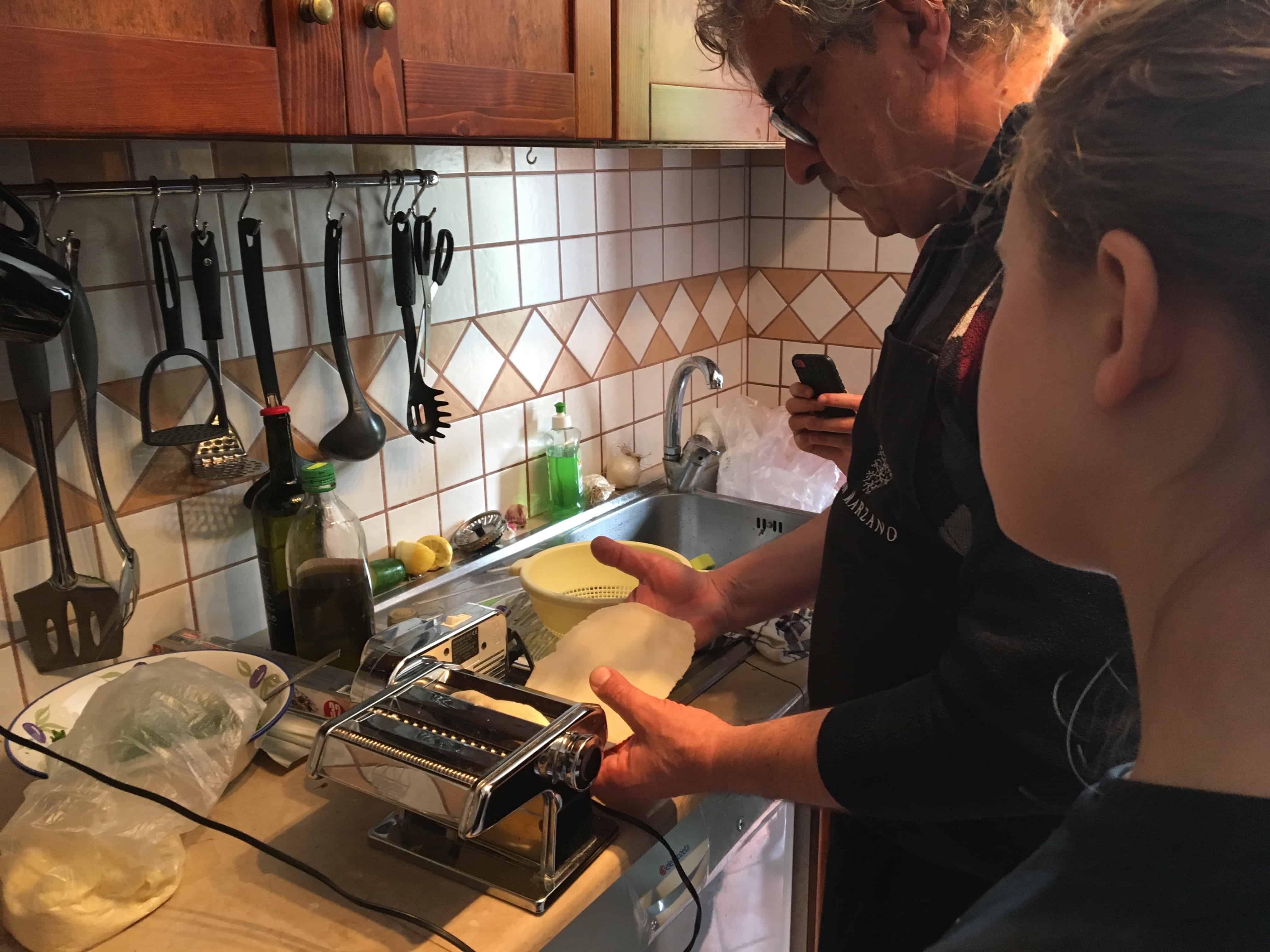
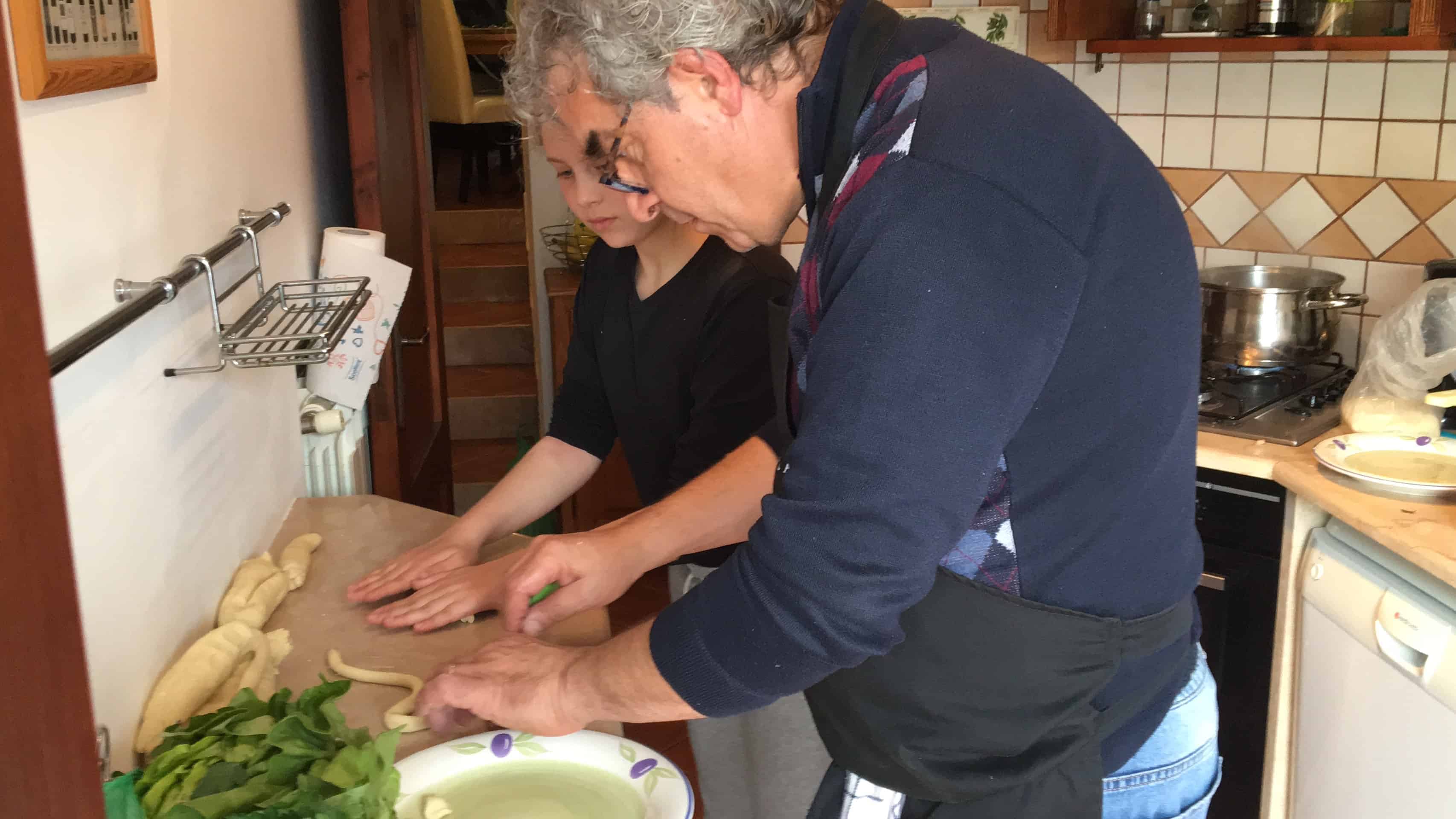
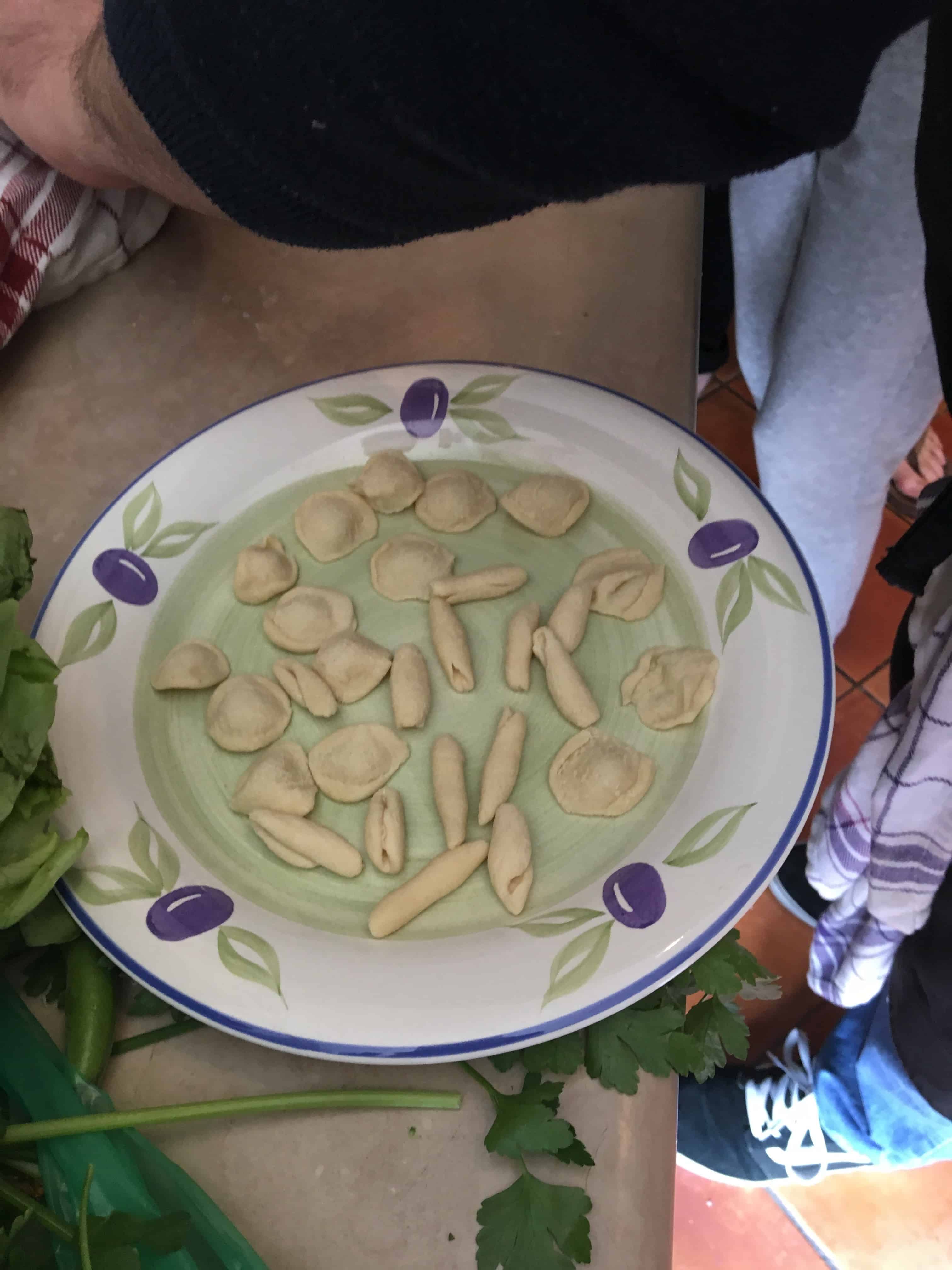
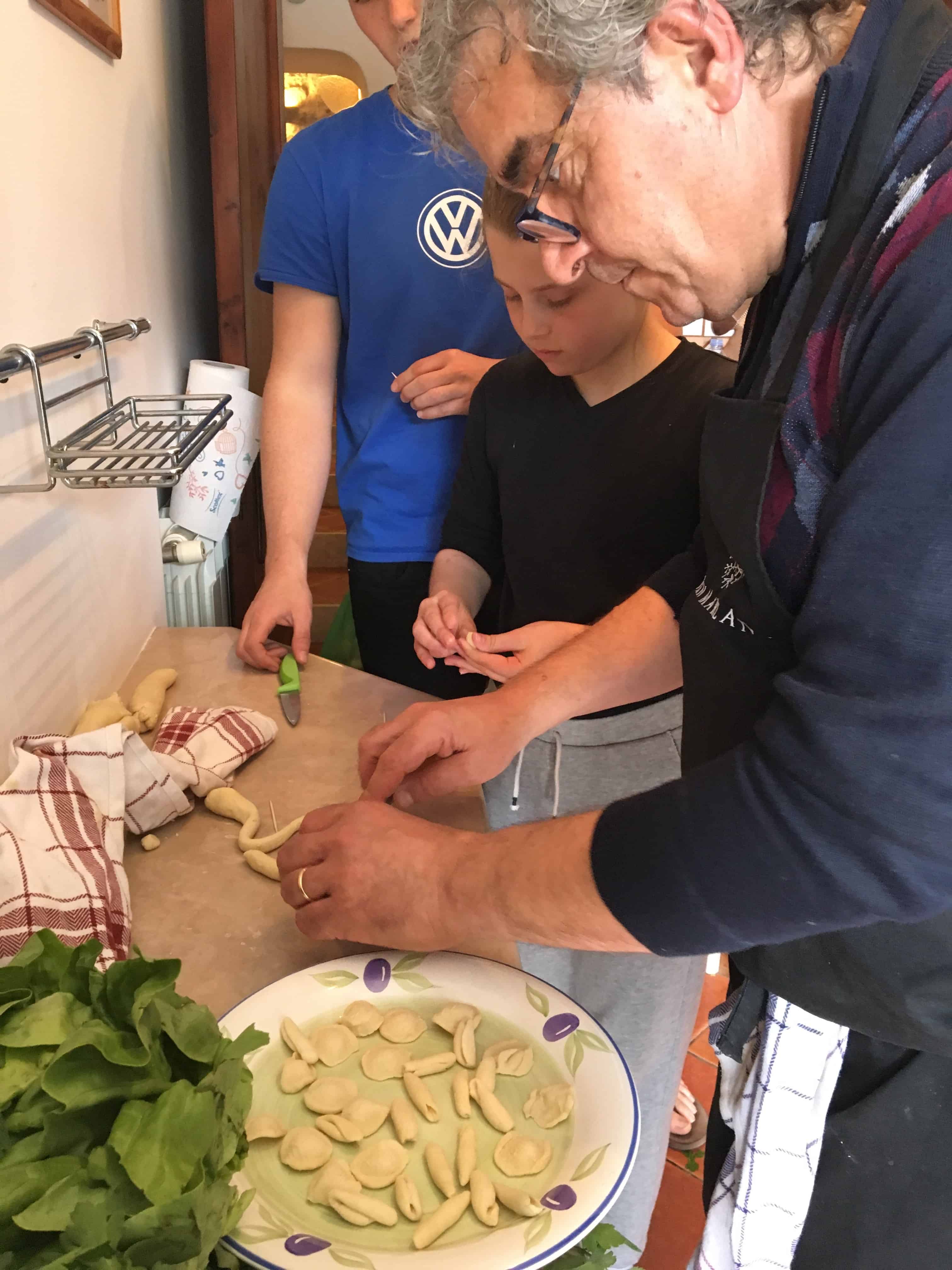
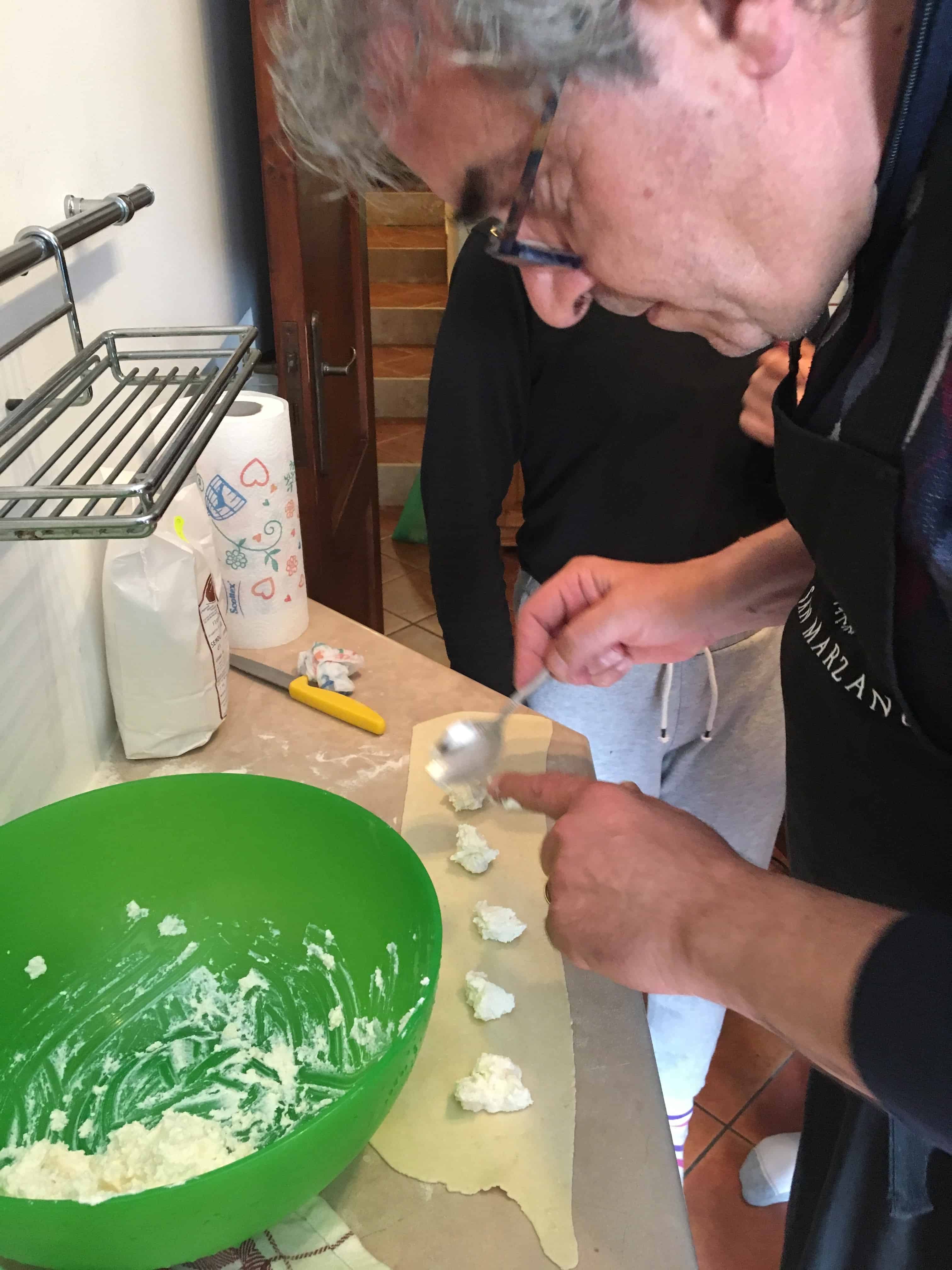
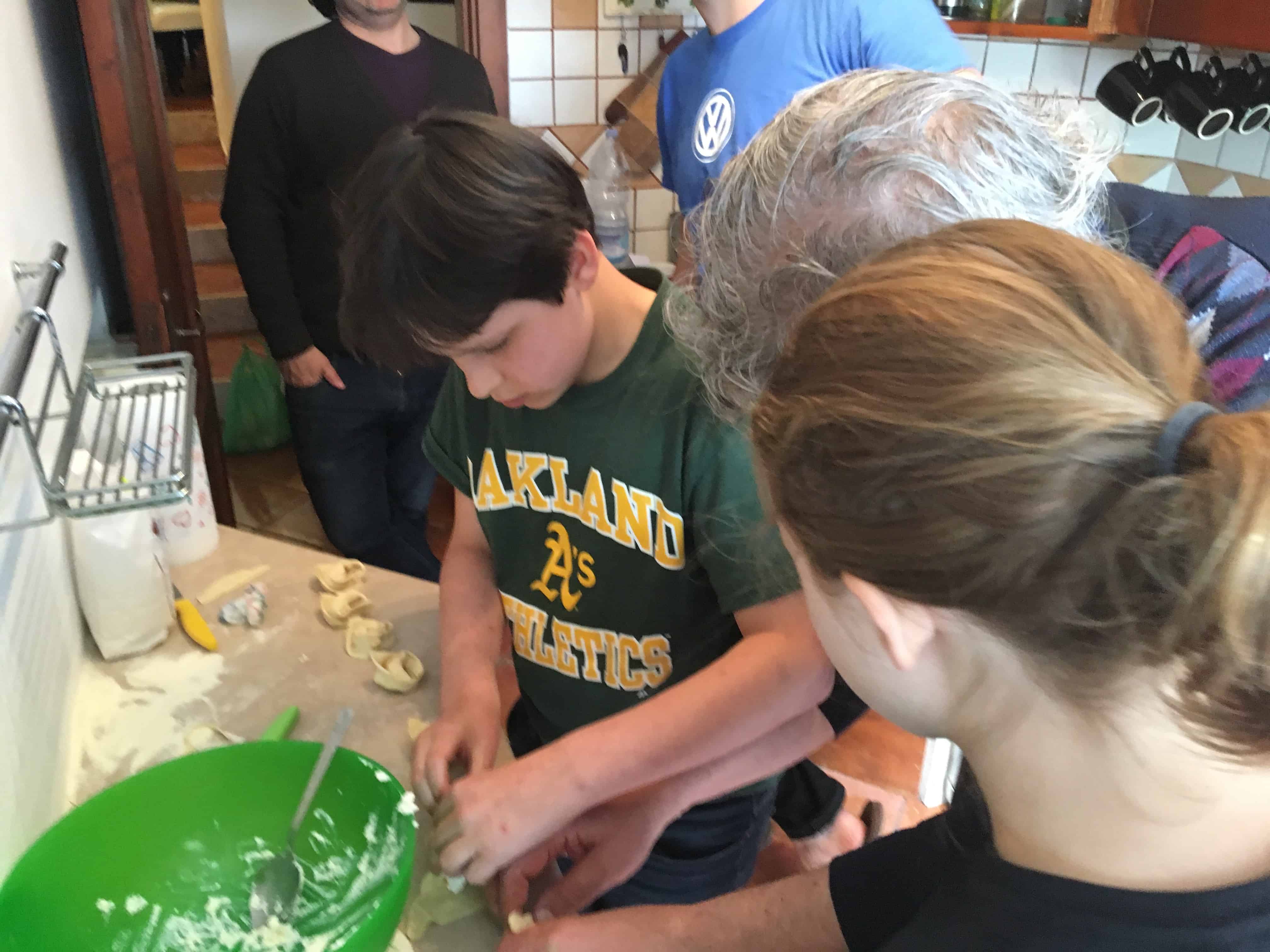
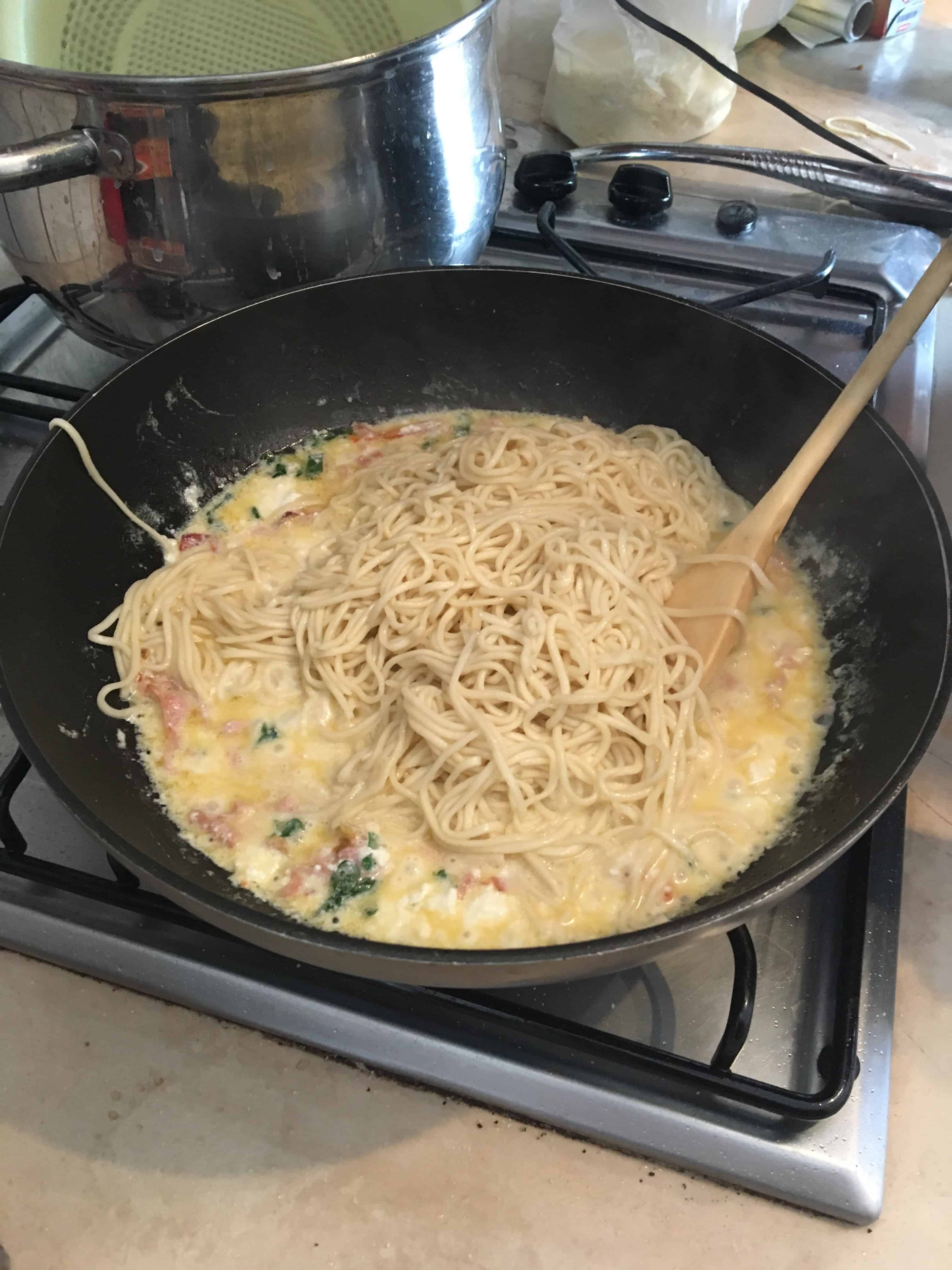
Focaccia For The Finishing Touch
Then, when it seemed that nothing was left, it was time for the focaccia bread. There seems to be some debate over its origins (Greek or Italian), but it is clearly a staple in Puglia. And while I have eaten various types over the years, nothing quite prepared me for the sight of it being made. Giuseppe pulled out a baking pan and poured an alarming amount of olive oil in the bottom, turning with a mischievous grin to see if it had the desired effect on me. It had, as my heart seemed to tighten and prepare for the massive, inevitable coronary that would follow. I wasn’t entirely sure how I was conscious at that point.
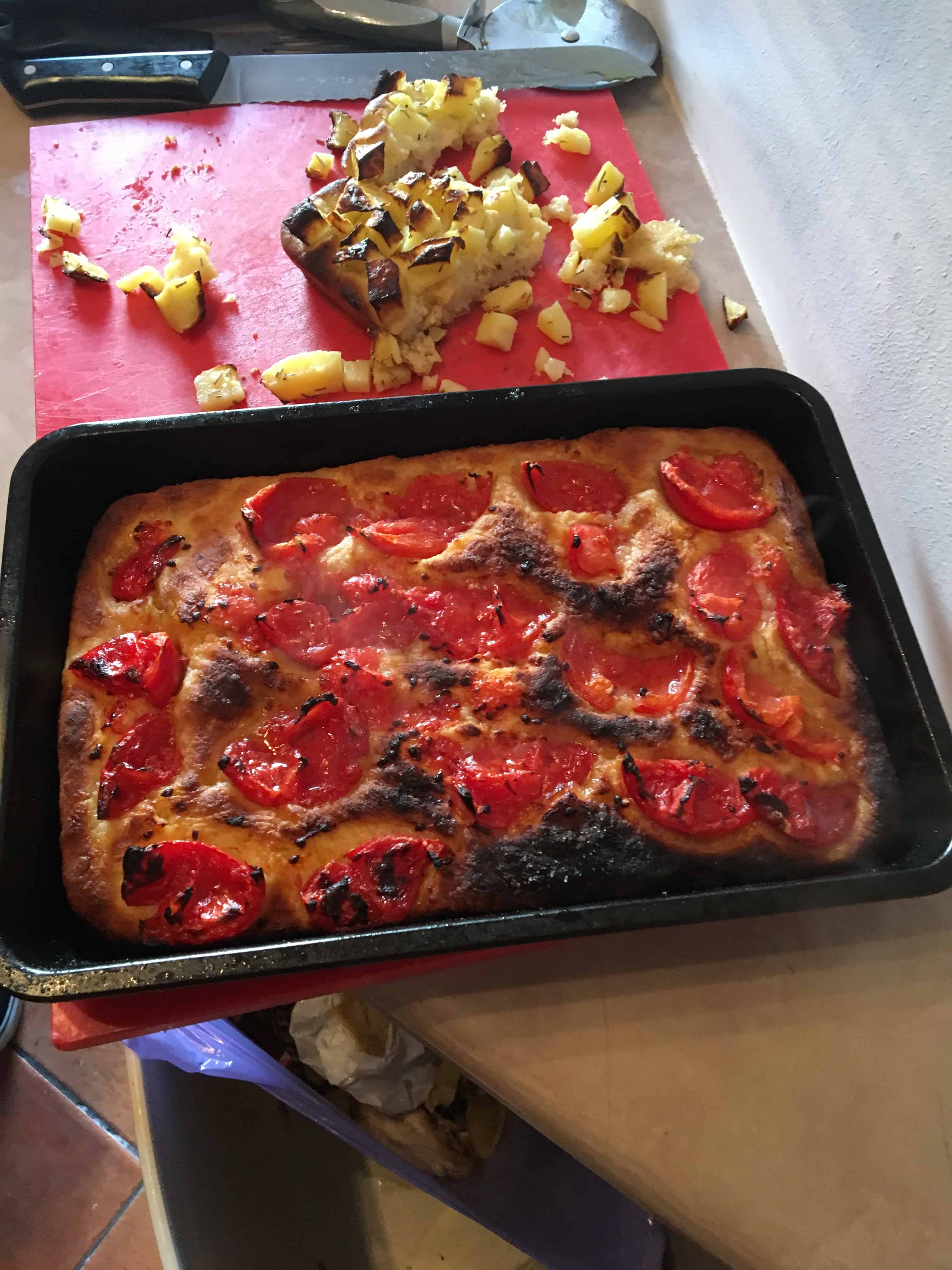
Then we turned and headed back into the trullo to confront the Herculean task of organizing and storing the leftovers that would ensure our little army would be enjoying this magical encounter with the local cuisine for days to come.
IF YOU GO:
The Best Way:
The Puglia region has two mid-size airports in the cities of Bari and Brindisi. They can be reached from other major European cities such as London, with frequency of service varying depending on the season. From within Italy, operators such as Alitalia and several budget airlines offer regular service from Rome and other major cities.
Getting Around:
From both airports, visitors can catch a bus or train via Ferrovie del Sud Est or FSE, Puglia’s regional transportation system. The website’s lack of an English-language version is a good reminder that use of English is not quite as universal in the south of Italy as it is in the north.
While FSE is good for trips between towns and cities, a car is recommended for more rapid departures and more flexibility to explore the countryside. Cars can be rented from both airports.
Where to Stay:
- Trullo Holidays, +44 (0)1621 774655 or jan@trulloholidays.com. The own a handful of Trulli around Puglia which tend to be in the countryside, including the one we stayed in, Trullo Rosa. Rates are about $1,400 for a week, depending on the season. We paid $1,050 for a six night stay in April.
- Trulli e Puglia, (+39) 080 432 4376, info@trulliepuglia.com. They own a series of trulli in the heart of Alberobello, if being in town is more your preference. A one-week stay in a basic trullo starts around $650.
- Masseria Brancati, 39 330 822 910, info@masseriabrancati.com. This B&B is also a working olive oil farm and production facility that sits not far from Ostuni, known as “The White City.” There are rooms that can cost as little as $70 per night for two people in the offseason, jumping to $116 in the summer, usually with minimum stays of at least two nights. There are also two apartments that can be rented for a week starting at $360.
Where to Eat:
- Trulli e Puglia Wine Bar, Piazza D’Annunzio 3, +39 347 553 8539. Great for sampling local meats, cheeses and wines, particularly the local Primitivo. Dishes starting around $4. But it’s also connected to the B&B above, and can organize private tastings of local dishes, olive oils, and even cooking classes.
- Evo Ristorante, Via Giovanni XXIII, 1, 70011 Alberobello, +39 320 848 1230. For a formal meal, particularly if you’re eager to try some of the region’s seafood, including cuttlefish, octopus, or traditional fare like rabbit. A two-course meal will cost around $41, not counting drinks, but a main dish can be ordered for $18.
- Giuseppe Lisi. Yes, the chef who was the star of our Puglia vacation. He can be reached by phone or WhatsApp at +39 334 988 5184.
To Learn More:
Chris O’Brien is an American journalist living in Toulouse, France. Before moving in 2014, he was based in Silicon Valley for 15 years, he wrote about technology and startups for the San Jose Mercury News and Los Angeles Times. From France, he publishes the twice-weekly newsletter French Crossroads which covers news and travel in France.







